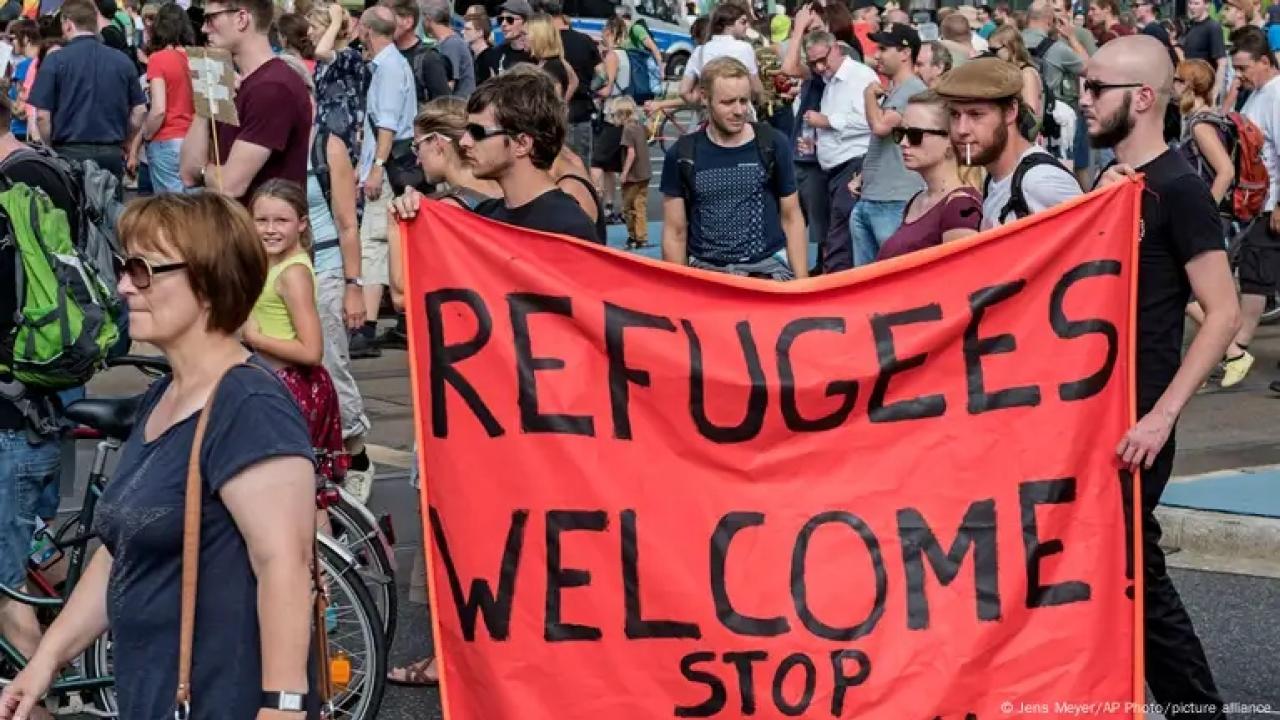
Large influxes of legal migrants and refugees can exacerbate social tensions, but implementing restrictive policies could limit countries' productivity, warns the International Monetary Fund (IMF).
"The implementation of restrictive policies regarding migrants and refugees can in some cases thwart a valuable opportunity to boost productivity, while shifting the burden of congestion to other areas," the International Monetary Fund (IMF) said in a preview of its World Economic Outlook (WEO).
CONTRIBUTIONS OF MIGRANTS, REFUGEES AND NATIVES
The chapter examines how one economy's policies for managing the legal influx of migrants and refugees can impact other destination, transit, and source economies.
More restrictive policies in one jurisdiction that discourage 20% of flows can increase inflows to other jurisdictions by 10% over five years, and output in an average economy that receives those additional inflows can increase by 0.2% over the same time horizon, according to their findings.
The effects on productivity can be greater if the skills of migrants and refugees complement those of natives.
"In emerging market and developing economies, the benefits from better refugee integration can be particularly significant," the macroeconomic organization emphasizes.
RELIEVE PRESSURE ON LOCAL SERVICES AND INFRASTRUCTURE
His report sees the need for measures to alleviate pressure on local services and infrastructure, prioritizing productive public investment and private sector development.
International cooperation is also seen as a potential way to more equitably distribute the short-term costs of accommodating large, unexpected inflows.
According to their calculations, the global population of legal migrants and refugees reached 304 million in 2024, 3.7% of the entire world's population and almost double the 1995 figure.
One in six were refugees or asylum seekers, and nearly 40% of migrants and 75% of refugees currently reside in emerging and developing economies.
The cumulative short- to medium-term economic impact is a modest reduction in gross domestic product (GDP) in the host economies that implement restrictions, with a small boost to production elsewhere due to increased labor supply.
GEOGRAPHICAL MOBILITY AND YOUTH, LONG-TERM BENEFITS
The IMF emphasizes that migrants are generally more geographically mobile than natives, allowing them to be more responsive to market changes. They, like refugees, tend to be younger, so they can generate economic gains that outweigh fiscal costs.
Although refugees often struggle to enter the labor market or find opportunities that match their capabilities, if they are properly integrated, the benefits of their contributions are considered greater, especially in the long term.
The organization admits that migrant and refugee policies have become a fundamental part of public policy in the context of an "anemic growth outlook and increasing demographic pressures."
The impact of these arrivals on inflation is complex, according to the IMF: their presence can increase labor supply, pushing down wages and inflation, but it can also stimulate demand for goods and services and exert upward pressure on prices in the short term if their supply is inelastic.
The full Global Economic Outlook Report will be released during the IMF and World Bank (WB) Spring Meetings, to be held from April 21 to 26 in Washington, DC, where the two institutions are headquartered.










